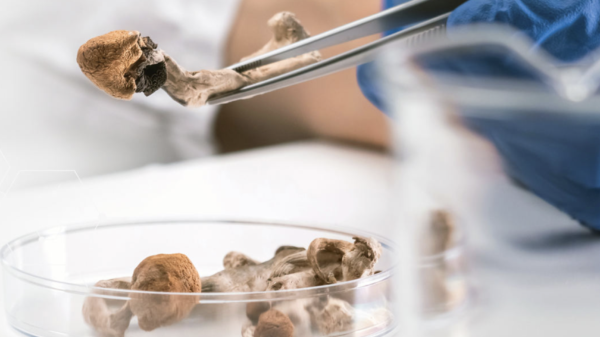A new psychedelics research facility in Ontario opened its doors last week. It aims to be a domestic hub for clinical trials and other studies amidst growing interest in psychoactive compounds and their treatment capabilities.
The Centre for Psychedelics Health and Research (CPHR) is a collaboration between Providence Care and Queens University. An unspecified donation from the Ontario Brain Institute made its creation possible. The Canadian Biomarker Integration Network in Depression, a Toronto healthcare research organization, supported its establishment too.
“I have no doubt that the centre will help our healthcare system make informed choices about the efficacy and safety of psychedelics in the future,” CPHR Director Claudio Soares said in a statement. He, like many, emphasized the lack of data and need for more extensive studies in the field.
Four years of research at Kingston’s Queens University led up to the centre’s grand opening last Wednesday, but much more is necessary. Thus far, the centre’s researchers have been primarily focused on psilocybin studies. They aim to examine other compounds down the road.
“We want to reduce stigma and we want to find new an innovative ways that will help people lead great lives,” Providence Care President and CEO, Cathy Szabo, said in an interview with Global News.
Our team @QueensUHealth becoming national leaders in #psychedelics research. Great to see the new research centre opening based at @providence_care, supported by @OntarioBrain @SEAMOKingston & others. Excellent clinical opportunities in this field. https://t.co/ozP7VbGfoS
— Jane Philpott (@janephilpott) August 8, 2024
Read more: Google co-founder invests millions in ibogaine research startup Soneira
Read more: Oregon authorities give Kaya Holdings license for psilocybin treatment clinic
PsyCan issues statement on future of psychedelics
Two days after the launch of Canada’s new psychedelics facility, the nation’s non-profit trade organization posted a bulletin about the industry’s future.
Its press release was issued in response to the United States Food and Drug Administration’s recent decision not to authorize MDMA as an approved therapy for PTSD. The government agency’s decision was linked to a lack of data, unsurprisingly.
This setback did not squander PsyCan’s optimism for the future of psychedelics globally, and in Canada particularly. Legalization and regulation of psychedelic therapies is inevitable despite hurdles, the trade association says.
“Given recent international developments and the growing mountain of clinical evidence, it’s a matter of when, not if, psychedelic medicine and therapy will be approved,” PsyCan Executive Director, Liam Bedard, said.
“That’s why we have been calling on the Canadian government to take a proactive, rather than reactive approach to regulating psychedelic medicine and therapy,” he added.
Other facilities conducting pioneering psychedelic research in Canada like the CPHR include Vancouver Island University and the University of Toronto Mississauga. The BC institution has a psychedelics centre and the Ontario school runs a research program.
In May this year, the University of Ottawa began offering a 1-year Master’s (MA) degree in “Psychedelics & Consciousness” studies for those pursuing careers in the infant sector.
rowan@mugglehead.com













